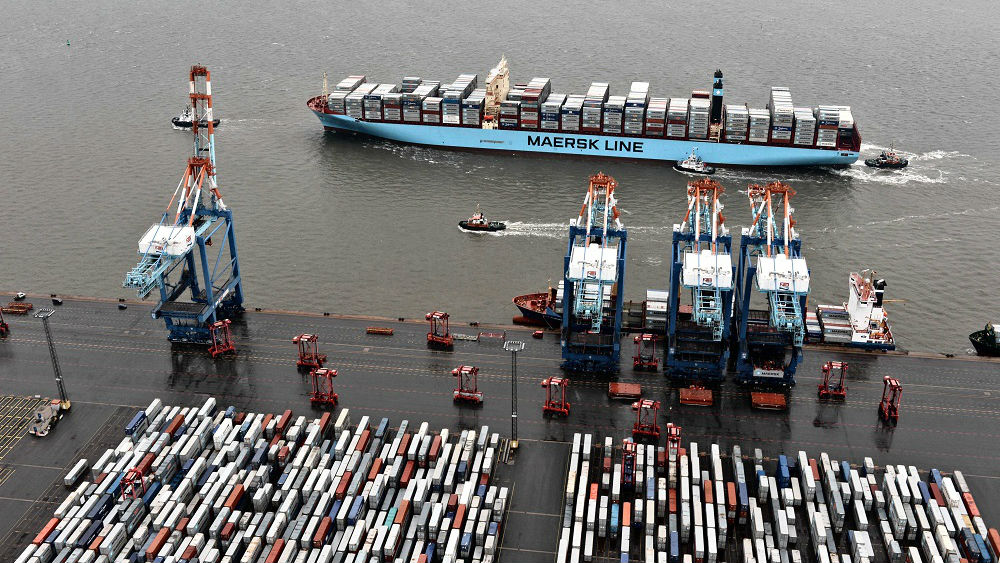Container Shipping Cuts CO2 Emissions

2015 annual reporting from BSR’s Clean Cargo Working Group indicates that average CO2 emissions per container per kilometer for global ocean transportation routes have declined by 8.4 percent from 2013 to 2014 and by more than 29 percent since 2009.
BSR is a global nonprofit organization that works with its network of more than 250 member companies to build a just and sustainable world.
The 2015 annual report provides an update on progress of BSR’s Clean Cargo Working Group (CCWG), now in its 12th year, and the annual disclosure of CO2 emissions factors for ocean container transport collected from 3,000 vessels.
JOC reports that the 2014 global fleet-wide average of grams of CO2 emissions per TEU carried per kilometer traveled was 53.4. “As carriers introduce into their fleets ever larger container ships with capacities that now exceed 20,000 TEUs, the newest, largest greenest ships are entered into the Asia-North Europe trades, where they replace slightly smaller, slightly older ships to other major east-west trade lanes. Therefore, by far the lowest average CO2 emissions were on the Asia-North Europe trade lane, at 37.9 grams.” The highest emissions were recorded in the intra-Europe trades at 84.
Maersk Better than Average
Maersk Line is performing better than CCWG average on almost all trades, and globally Maersk Line has more than a 10 percent advantage over the global CCWG industry average, says the company. In comparison with last year’s numbers, Maersk Line’s CO2 average across all trade lanes has improved 32 percent in the previous three years.
More than 40 global customers and container carriers are part of the CCWG (representing 80 percent of all global container shipments) and are dedicated to accelerating sustainability improvements in the container shipping industry. They do this by developing aligned environmental standards, tools and comparable performance data, enabling customers to benchmark environmental performance and integrate environmental performance indicators into procurement decisions.
A particular strength of the CCWG is to collect and report CO2 emission performance data not only on a global level, but also more granularly for a set of standardized trade lanes, e.g. Asia to the West Coast of North America. Furthermore the submitted data is verified independently to secure high data quality.
Several Maersk Line customers have an ambition to grow their business in a responsible way, and the independent verified data from CCWG allows customers to integrate CO2 data into their supplier selection together with other sustainability parameters without worrying about data quality.
Customers interested in CO2 partnerships include Tetra Pak, DB Schenker and BMW, all of which have signed Carbon Pacts with Maersk Line, show mutual commitments to improve the sustainability performance of their ocean transportation.
Environmental Performance Data
Every year, CCWG carriers report vessel-specific environmental performance data to BSR through a standard template and based on the CCWG CO2 methodology. BSR provides the aggregated data to shipping customers with individualized carrier scorecards.
Environmental performance expectations, from customers, regulators, and consumers, continue to escalate, says the organization. However, standardized data and forums that can help companies remain ahead of trends and regulation are few and far between.
“While changes in carrier representation or global trade conditions likely explain a portion of these results, the continued performance improvement is also attributable to carrier fleet efficiency and data quality, both of which have direct benefits for shipping customers,” said BSR.
In the past two years, CCWG has engaged with priority industry groups, published a report on its methodology, facilitated sharing of best practices among members and moved to an online reporting system.
